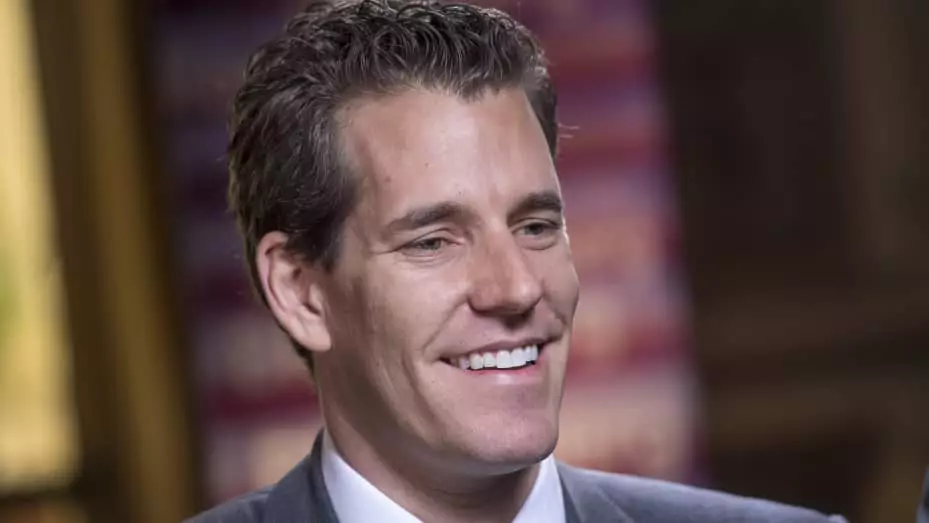In the ever-evolving landscape of cryptocurrency regulation, the recent moves by Tyler Winklevoss, co-founder of the Gemini crypto exchange, signal a significant shift in how industry players are willing to respond to perceived injustices. By announcing that Gemini will mirror Coinbase’s decision to sever connections with law firms that employ former officials of the U.S. Securities and Exchange Commission (SEC), Winklevoss is compelling a broader conversation about accountability in the regulatory environment surrounding digital assets.
A Bold Stance by Industry Leaders
Winklevoss’s declaration isn’t merely a reaction to his opponent’s criticisms but an outspoken dedication to reshaping how the cryptocurrency community engages with the regulatory framework. His call for a “running list” of SEC officials engaged in what he denounces as an “unlawful war on crypto” reflects a growing frustration within the sector. This sentiment has been echoed by other industry leaders, including Coinbase’s CEO Brian Armstrong, who has publicly expressed dissatisfaction with the SEC’s perceived heavy-handed approach to enforcement and regulation.
The implications of Winklevoss’s statement are profound; they introduce a prospective shift in the dynamics between the crypto industry and regulatory bodies, essentially laying down a gauntlet for the legal professionals who play pivotal roles in the interpretation of rules governing digital currencies. In light of Armstrong’s high-profile decision to sever ties with Milbank—primarily due to the firm hiring former SEC officials—there’s increasing pressure on all firms in the space to take a stand.
The SEC, under scrutiny for its aggressive enforcement strategies, has faced criticism from various corners of the crypto community. Current events have intensified this scrutiny, especially regarding high-stakes cases like the ongoing litigation against Ripple. The agency’s aggressive stance towards crypto companies has prompted questions about its stability and vision, leading personalities such as attorney Jeremy Hogan to argue that the SEC’s tactics could eventually undermine its authority in regulating the industry effectively.
Armstrong’s critiques underscore a broader issue of trust between the crypto community and regulatory bodies—an issue that transcends mere policy disagreements. He views the hiring of former SEC officials who were instrumental in enforcing policies seen as detrimental to the industry as a harmful confluence that should be actively discouraged. Armstrong’s belief that financial benefits should not flow to those who have contributed to a regulatory overreach suggests a need for reformation within the legal landscape pertaining to cryptocurrencies.
Winklevoss’s actions, alongside Armstrong’s, highlight a transformative movement aimed at engendering accountability in the crypto regulatory space. This trend could result in significant changes in the way the crypto sector interacts with former SEC officials and firms associated with them. As vocal advocates, both Winklevoss and Armstrong embody a generation of cryptocurrency entrepreneurs and developers unafraid to challenge regulatory authorities when their practices are perceived as coercive or antithetical to innovation.
The concerns surrounding individuals such as former SEC Chair Gary Gensler, who’s been at the center of critiques about stifling innovation, also underscore the evolving conversation. Notably, Tron founder Justin Sun’s intriguing proposition to hire Gensler if he demonstrated a more lenient attitude toward the cryptocurrency industry underlines the chaotic nature of regulatory dynamics and the mutual distrust permeating this space.
The urge to hold regulatory figures accountable reflects broader societal trends wherein the lines between legality, ethics, and industry best practices are increasingly blurred. Indeed, Winklevoss and Armstrong’s stances exemplify a desire to reshape the industry’s landscape, ensuring that former officials who may have acted contrary to the interests of innovation in crypto should not stand to profit from the industry they have, in their view, unjustly targeted.
As scrutiny of regulatory bodies increases, the stakes for both sides rise. Should Winklevoss’s call-to-action resonate widely throughout the crypto community, we might witness a significant reconfiguration of legal and professional expectations regarding engagement with former regulators. The future of cryptocurrency hinges less on government dictation and more on how industry players align and respond proactively to create an ecosystem grounded in mutual respect, transparency, and accountability.
In sum, the overt actions taken by leaders like Winklevoss reflect a critical and evolving conversation on the ethics of regulatory oversight, a narrative that looks set to shape the future interactions between crypto enterprises and government regulators.

